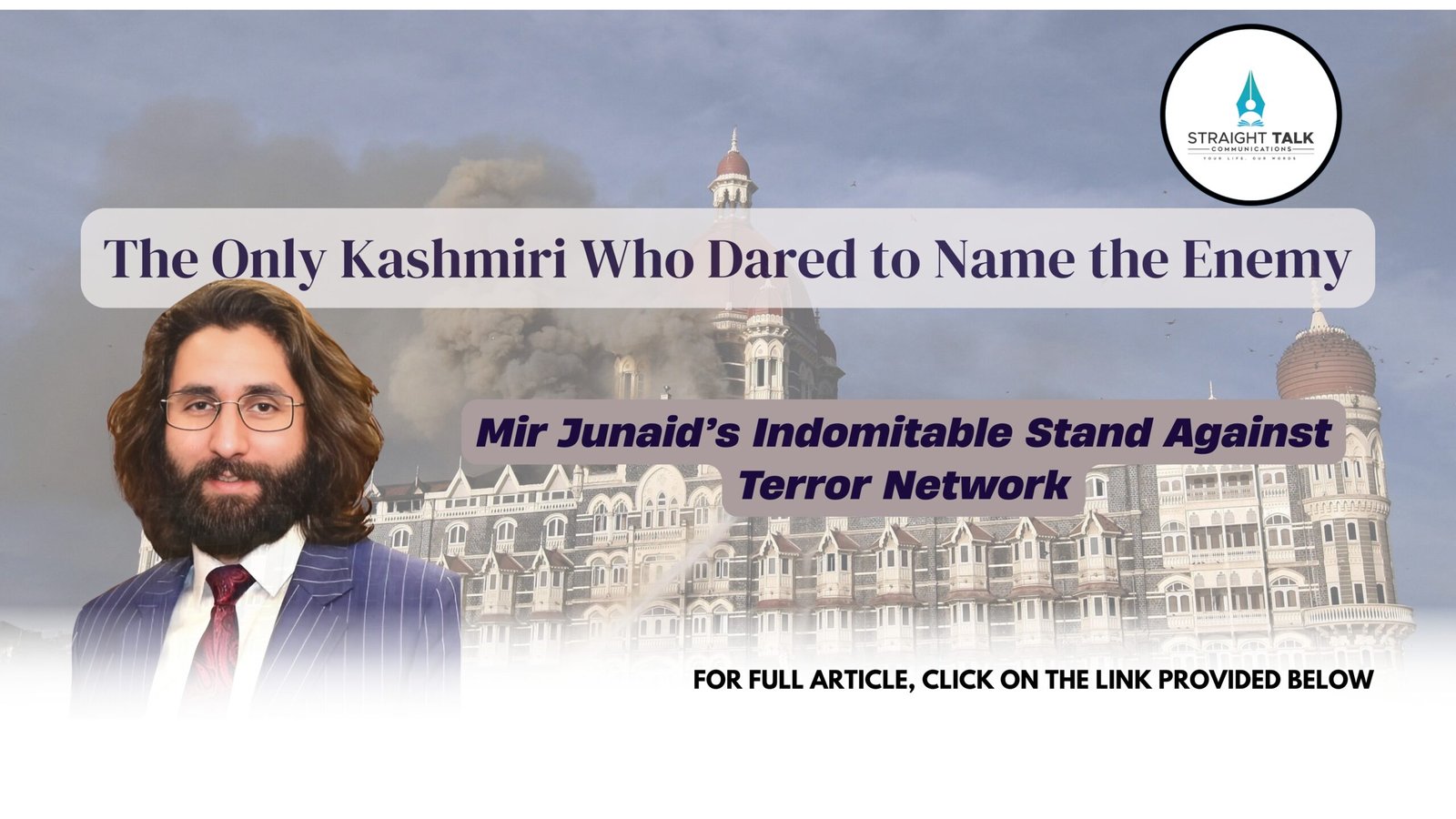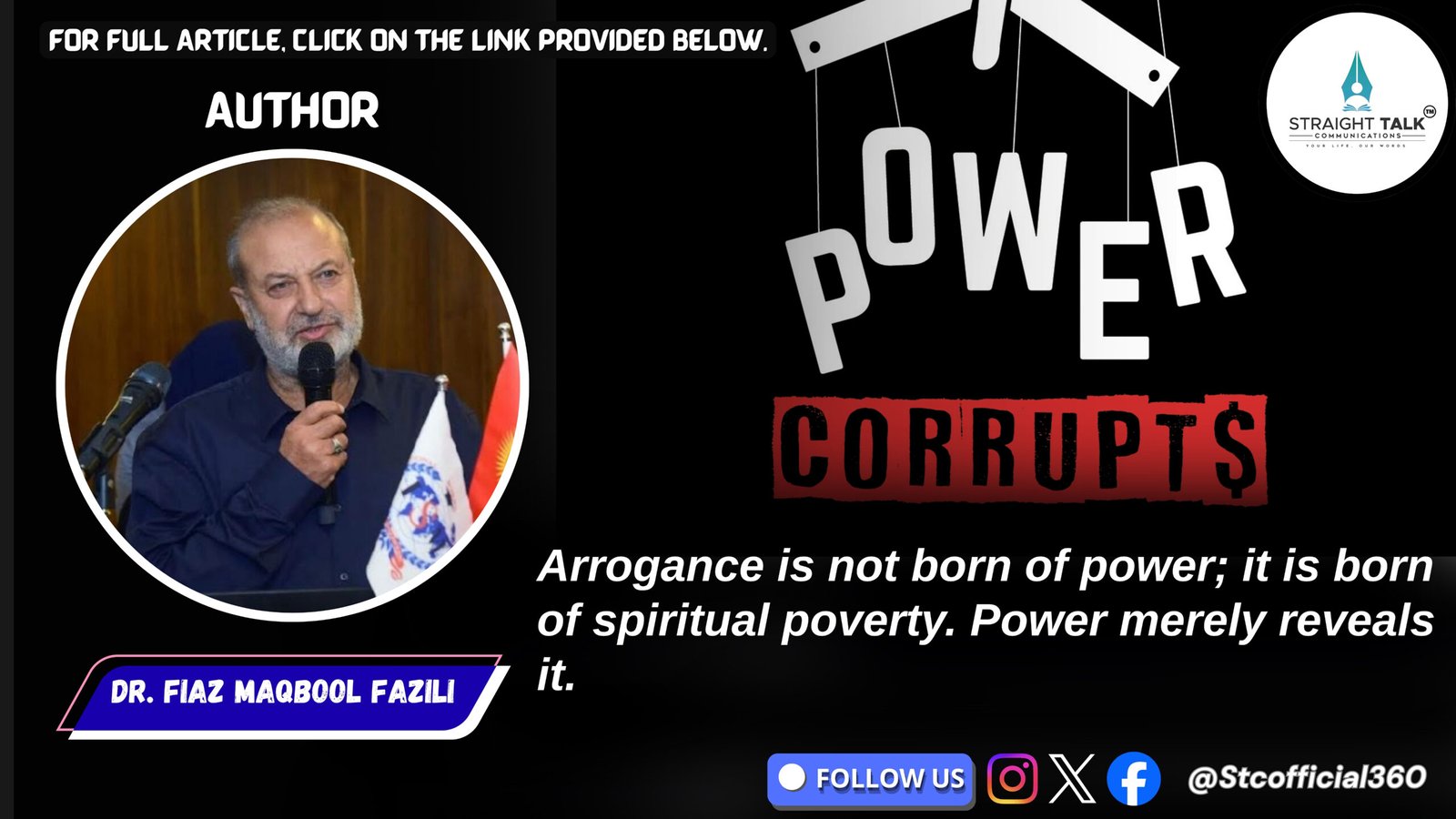The Only Kashmiri Who Dared to Name the Enemy

Mir Junaid’s Indomitable Stand Against Terror Network
Nahid Hussain
The formal arrest of Tahawwur Hussain Rana, one of the key accused in the heinous 26/11 Mumbai terror attacks, following his extradition from the United States, marks not just a significant step in India’s pursuit of justice, but also a reminder of the deep, unresolved wounds inflicted by state-sponsored terrorism. While the corridors of power in Delhi speak of due process and legal accountability, the real fight to preserve memory, expose duplicity, and confront the machinery of terror has been waged consistently—not only in courts or diplomacy—but on the ground, in the hearts and minds of the people. And no individual has more doggedly championed that cause in Jammu and Kashmir than Mir Junaid.
The extradition of Tahawwur Rana—an operative with deep ties to Lashkar-e-Taiba and a close associate of David Coleman Headley—has been a long-awaited development. Rana’s involvement in facilitating reconnaissance for the attacks that left 166 people dead in Mumbai has long been established by intelligence agencies, investigative journalism, and even open court testimony. His return to Indian soil, and subsequent arrest by the National Investigation Agency (NIA), represents more than procedural justice—it is a symbolic dismantling of the impunity enjoyed by many architects of cross-border terror.
But behind this geopolitical and legal milestone lies a critical, often ignored truth: Justice does not sustain itself on government files alone. It needs torchbearers in civil society, relentless truth-tellers, and those willing to expose uncomfortable realities. In this context, Mir Junaid—the young political leader and social reformer from Jammu and Kashmir—has played a singular role in keeping the memory of 26/11 alive and untainted by political obfuscation or narrative dilution.
For years, while much of the discourse on terrorism in the Valley was caught in euphemisms and strategic ambiguity, Mir Junaid called a spade a spade. Through grassroots mobilization, public commemorations, hoardings, awareness drives, and direct educational engagements, he drew a sharp, non-negotiable line between the Kashmiri people and the extremist forces attempting to hijack their identity. In the past year alone, he has commemorated 26/11 in 14 districts across Jammu and Kashmir, including symbolic hoardings at over 40 locations in Srinagar, a city that has long been at the receiving end of both terrorism and propaganda.
Notably, Mir Junaid took the narrative beyond the region—organizing vigils and tributes at Gateway of India and Girgaon Chowpatty in Mumbai, the epicenters of the 2008 carnage, standing shoulder-to-shoulder with survivors, journalists, and security personnel. He also facilitated symposiums, youth workshops, and academic discussions that unmasked Pakistan’s consistent strategy of sponsoring non-state actors under the veil of plausible deniability.
What makes Mir Junaid’s contributions intellectually forceful and politically courageous is his refusal to compartmentalize terror. Unlike many who cautiously tailor their critiques to preserve diplomatic niceties, he has unequivocally named and exposed the networks, handlers, and ideological justifications behind such violence. His interventions have appeared not just in local press but have echoed across national and international platforms, reaffirming that Kashmiris—real Kashmiris—are not silent spectators to terror but active voices of resistance against it.
The extradition of Tahawwur Rana, therefore, is not merely a legal update—it is a vindication of every activist, policymaker, and citizen who refused to allow 26/11 to fade into the amnesia of ‘routine geopolitics.’ It is also a moment for Indian society to amplify the voices that have kept this memory alive in the most challenging of circumstances.
As we move forward, this moment demands vigilance, not celebration; clarity, not complacency. The battle against terrorism is not won in a courtroom—it is won when civil society refuses to normalize it. And that refusal has found a powerful standard-bearer in Mir Junaid, whose work in Jammu and Kashmir reminds us that truth, even when politically inconvenient, must be spoken—and repeated—until justice is complete.
(The views expressed in the article are of the author and not that of Straight Talk Communications)







